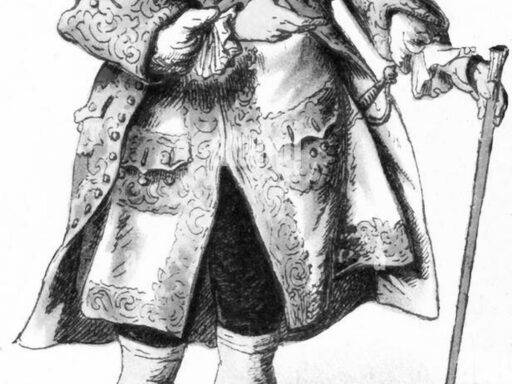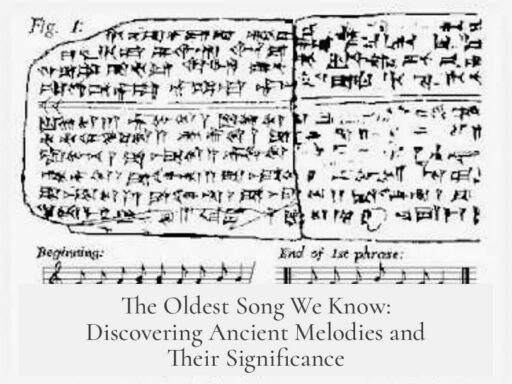The phrase “liar, liar, pants on fire” likely originates from a mix of folk traditions and literary references, with its exact origin remaining uncertain but traceable to at least the early 19th century. It serves as a popular children’s taunt accusing someone of lying, often followed by “hangin’ on a telephone wire.”

One possible origin lies in Georgian (South Caucasus) folk tales. In these stories, a thief’s guilt is symbolized by their hat catching on fire. Communities look at neighbors’ hats, trying to spot whose hat burns, thus identifying the liar or thief. This vivid imagery associates fire metaphorically with deception or wrongdoing.
Another key influence is William Blake’s 1810 poem, “The Liar.” The poem contains the phrase “liar, liar, your tongue’s on fire,” which resembles the children’s rhyme. Blake’s mention of trousers (pants) on fire may itself be a paraphrase or playful extension of this idea, linking the discomfort of being caught lying to a physical punishment symbolized by burning pants.

Scholars and enthusiasts debate whether Blake coined this phrase or adapted an earlier folk chant used by children. The rhyme’s evolution into “pants on fire” might have been influenced by existing oral traditions or earlier, undocumented phrases. However, no definitive record predates Blake’s poem.
The extension “hangin’ on a telephone wire” comes from the modern adaptation of the rhyme and is absent in older sources. This addition aligns with 20th-century contextual elements, modernizing the chant for children.

- Georgia folk tales use fire as a symbol of deceit.
- William Blake’s 1810 poem references lying and fire imagery.
- The children’s phrase likely developed from blending folklore and literature.
- The phrase evolved over time with new endings like “hangin’ on a telephone wire.”
In conclusion, “liar, liar, pants on fire” is a phrase with layered origins. It combines regional folk symbolism about fire revealing guilt and literary phrasing popularized by Blake. The children’s rhyme adapts and simplifies these notions to create a catchy, memorable taunt about dishonesty.” This blend of cultural history illustrates how language and folklore shape childhood expressions.
What Is the History Behind the Children’s Phrase ‘Liar, Liar, Pants on Fire’?

Ever wonder where the cheeky kids’ chant ‘liar, liar, pants on fire’ actually comes from? It’s a phrase we all remember from childhood playgrounds. But the story behind it isn’t just a silly rhyme tossed around by kids—it has a fascinating, layered history that stretches across centuries and continents. Ready to jump down this quirky rabbit hole? Let’s dig in.
At first glance, the phrase ‘liar, liar, pants on fire’ seems pretty straightforward: if you lie, your pants catch fire. Wild, right? But what’s the origin of this fiery accusation? Scholars and folklore enthusiasts have traced its roots back to a mix of cultural tales, poetry, and rumors that blend fact with a hint of mystery.

From Georgian Thieves to Flaming Trousers
Surprisingly, one possible origin lies far from American schoolyards—in the mountainous region of Georgia (the country in the South Caucasus, not the southern U.S. state). In traditional Georgian folk tales, there’s a memorable trope involving a thief’s hat catching on fire. Whenever a community tries to find a thief, suspicious eyes scan everyone’s hats, hoping to spot the fiery culprit.

It’s a vivid, believable image—imagine a clandestine thief walking around unknowingly with his hat aflame! This motif of catching someone’s “gear” on fire as proof of guilt fits remarkably well with the idea of “pants on fire” being symbolic of a lie. Fire, in these stories, represents exposure and truth—a classic way to shame someone caught in wrongdoing.
William Blake: The Poet Who Might’ve Fanned the Flames
The phrase’s textual pedigree might gain gravitas from the classic poet William Blake. In 1810, Blake composed a chilling poem titled The Liar, which vaguely references “trousers on fire.” Though Blake doesn’t hand us the exact phrase kids recite today, his poem contains a similar metaphor linking lying to fiery punishment—a clear nod to the old idea that lies lead to consequences as flaming as burning fabric.
Some sources believe that the popular children’s rhyme is a paraphrase of Blake’s work, or at least inspired by it. Others argue Blake may have picked up the idea from an already existing folk chant or children’s rhyme. This chicken-and-egg problem gives the phrase a bit of elusive charm, doesn’t it? Who passed the torch—or rather, the matchstick—first?
Digging Deeper: Older Origins or Just Playful Speculation?
While Blake’s poem is a significant landmark in tracking the phrase’s development, some speculate that an older origin exists. What, after all, inspired Blake to consider “trousers on fire” as a vivid metaphor?
One plausible theory is that Blake was responding to a rhyme or saying already ingrained in childhood folklore. If kids were mid-chant shouting “liar, liar, pants on fire” before 1810, then Blake was well ahead in tapping into popular imagery.
Others believe that the idea of garments catching fire as divine or social punishment is ancient, recurring in many cultures worldwide. Clothes symbolize one’s public image—put fire on that, and there’s no hiding your shame.
Where Does That Leave Us? A Phrase That Burns Bright with Mystery
Today, we know the phrase as a fun yet pointed way for children to call out dishonesty. But it’s more than playground banter; it’s an expression woven from folklore, poetry, and social practice—the way communities have long tried to highlight truth and shame lies.
Curious minds continue to seek earlier written or oral examples of the phrase. For instance, online communities like Reddit’s folklore enthusiasts periodically try to unearth obscure references, hoping to save the phrase from being just a modern-age playground artifact.
What Can We Learn from This Fiery Saying?
- First: Language often evolves from shared stories, spreading from country to country, culture to culture.
- Second: Proverbs and poems use vivid images—like fire—to make lessons memorable. Imagining “pants on fire” is much more powerful than saying “you’re lying.”
- Third: Children’s phrases carry deep cultural significance. What seems humorous masks centuries of societal attitude toward honesty and shame.
How to Use This Knowledge?
Next time you hear or say “liar, liar, pants on fire,” you’re not just tossing around silly words—you’re invoking a rich tradition of folklore and poetry. If you’re a teacher, parent, or lover of language, why not share this historical tidbit? It might turn a simple taunt into a mini-history lesson, engaging kids with the past in an entertaining way.
Also, if you delight in digging into language quirks, consider hunting for even earlier versions of this rhyme—there’s a good chance more fiery tales await discovery. Maybe you’ll be the hero who tracks down the original chant! (No actual pants-on-fire required.)
In Conclusion
The phrase ‘liar, liar, pants on fire’ likely originated from a mix of Georgian folk tales and literary influence, most notably William Blake’s 1810 poem The Liar. It’s a surprising combo of high art and street playground banter—proof that storytelling takes many forms.
Whether it’s a thief’s flaming hat in a Caucasus village or a fiery metaphor in Victorian poetry, this saying shows us how images of fire represent exposure of truth universally. So next time you hear it, remember: That catchy chant comes with centuries of smoky history behind it.




